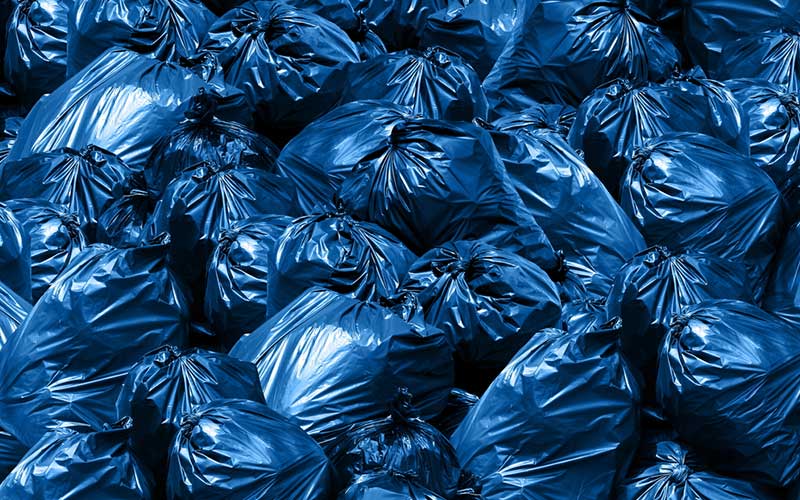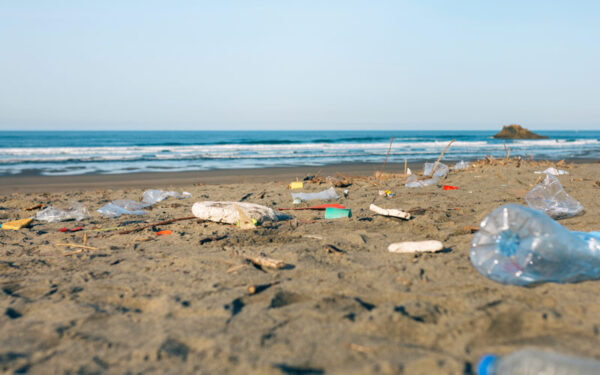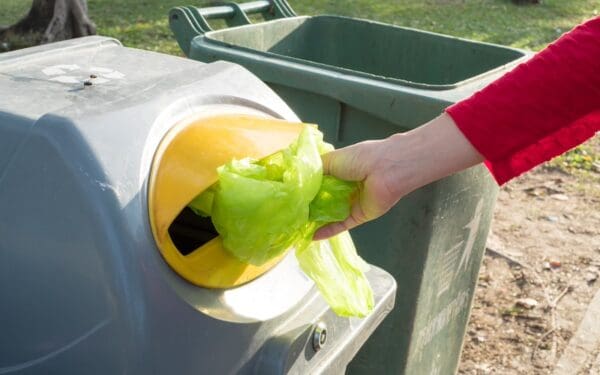
Producer Responsibility for Packaging laws could drastically cut our waste generation and disposal – and their harms. Photo: DeawSS via Shutterstock
The Problem
Big corporations blame the influx of trash tainting the Earth on consumers, saying we need to recycle more. But even when we do our best, much of what we put into our recycling bins still ends up in a toxic landfill or incinerator. The problem is that large manufacturers keep churning out single-use packaging that can’t be recycled.
Manufacturers should not be allowed to reap profits while their toxic products and packaging harm our health and environment – and all while New England’s cities and towns foot the bill to manage their waste. Only by holding producers accountable and dumping disposable products can we move towards more sustainable methods for managing our trash.
CLF In Action
CLF launched its Zero Waste Project in 2017 to protect New England communities from the dangers posed by the trash crisis. In addition to opposing landfill and incinerator expansions across New England, CLF is tackling the waste crisis at its source by pushing to phase out single-use products and packaging.
The key to that work is holding large manufacturers accountable for the waste they create. CLF advocates are pushing for legislation called “Extended Producer Responsibility for Packaging” across the region. When put into practice, this kind of law requires corporations that make and use single-use packaging – like Clorox and Johnson and Johnson – to reimburse cities and towns for the cost of managing their trash.
By putting the responsibility for the flood of single-use packaging waste back onto manufacturers, it provides a financial incentive for them to redesign their packaging to be truly recyclable – or, better yet, reusable.
Progress on Producer Responsibility
Earlier this year, CLF and its partners successfully pushed Maine’s legislature to pass a first-in-the-nation bill that makes producers responsible for their packaging. The legislation will make recycling work for Mainers, not corporations.
Now, a fee will be imposed on each type of packaging (plastic, paper, cardboard, aluminum, etc.) to reflect the total cost of collecting, processing, transporting, and recycling it. This money will be used to reimburse Maine’s cities and towns for the costs of dealing with all this packaging waste. Fees can be adjusted if manufacturers reduce their wasteful packaging, increase its recyclability, or minimize its toxicity.
Building on Maine’s momentum, in August, members of CLF’s Zero Waste Team attended a two-day conference with many of its partners. The attendees’ goal: to draft model legislation that other states can use in their own efforts to hold plastic producers accountable, while protecting the health and environment of their communities.
Next Steps to Holding Plastic Producers Accountable
In Maine, state regulators now must develop the rules for implementing the landmark law. Elsewhere, momentum around producer responsibility for packaging is growing. Nearly a dozen states – including Vermont and Massachusetts – introduced similar laws this year. Most of these bills were defeated, however, showing that the fight for manufacturer accountability has just begun.
CLF is now turning its attention to Massachusetts, which still has an opportunity to pass its bill and change the state’s recycling system for the better.
Producer responsibility laws have the potential to drastically cut our waste generation and disposal – and their harms. CLF is committed to building on the victory in Maine and advancing this groundbreaking solution throughout New England.




